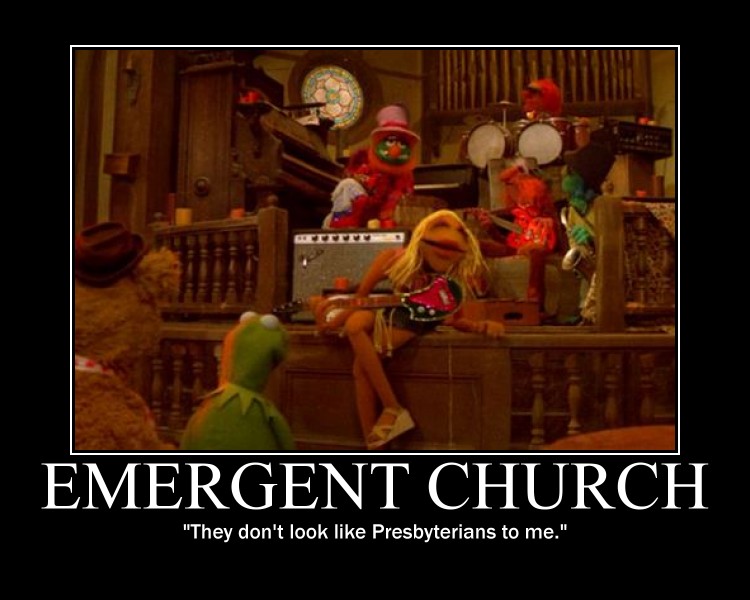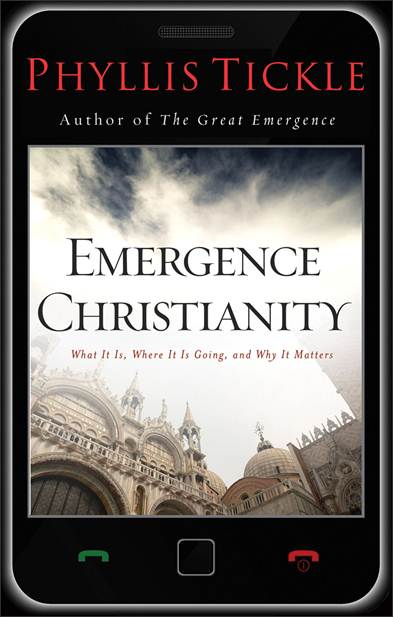Emergence Christianity, What Is It?
 While in comparison the larger Church, the Emerging Church Movement (ECM) is a growing player in the post-modern Christian landscape. While not quite what most would consider a “power-player”, the influences of the ECM are evident around the world and span the different theological houses from conservative evangelical to theologically liberal. Why has this movement been able to gain traction, grow, and sustain itself? While it is hard to imagine the ECM will take the place of entrenched denominations with centuries of established tradition and leadership structures any time soon, what influence will this movement have in addition to what influence has it already had?
While in comparison the larger Church, the Emerging Church Movement (ECM) is a growing player in the post-modern Christian landscape. While not quite what most would consider a “power-player”, the influences of the ECM are evident around the world and span the different theological houses from conservative evangelical to theologically liberal. Why has this movement been able to gain traction, grow, and sustain itself? While it is hard to imagine the ECM will take the place of entrenched denominations with centuries of established tradition and leadership structures any time soon, what influence will this movement have in addition to what influence has it already had?
As I prepare to finish my time at Wesley Theological Seminary I am exploring the ECM's role within the larger Church. Over the coming weeks I am going to share my thoughts on defining the ECM, examine how the ECM is influenced by a post-modern world-view, give a brief timeline of the beginnings of the ECM, and examine the ECM in practice. My findings are but a small sketch of the overall ECM in the United States. These findings should not be considered final because the ECM is still in it's infancy when considered within the history of Christianity.
Defining Emergent/Emerging Church
The ECM has been described as a group that, “talks like Lutherans... theologize like the reformed... drink like Episcopalians... worships like charismatics... (and) vote like liberals.” (McKnight, Scot. "What Is the Emerging Church?" What Is the Emerging Church?)
Scot McKnight used two denominations to describe commonly applied attributes to the ECM however the vast majority of those within the movement would not use the word denomination (or liken themselves to a denomination) to characterized their efforts. The terms movement and conversation are favored over words like denomination. The ECM is a conversation where a variety of theological backgrounds and opinions have been present, and it is the relational/missional aspects of this movement which make it difficult to pinpoint a definition. For example, theologians like Scott McKnight, Brian McLaren, and Mark Driscoll have all at one time or another contributed their theological perspectives to the ECM conversation. These three theologians present a wide array of perspective along with an array of ministerial contexts.
There are three elements of the ECM which insiders and outsiders should be aware of. First, the ECM is a protest against evangelicalism, which as you will see later on is ironic as some of the ECM’s founders have joined the evangelical camp. Being in what Scott McKnight calls the “post-evangelical” lake, many in the ECM either have experience in the evangelical church as youth pastors or grew up in the evangelical church and are now looking beyond what they were taught growing up. McKnight offers this simplified synopsis of the ECM’s critique of evangelicalism, “the gospel is more than Jesus coming to die for my sins so I can get to heaven.” (McKnight)
The idea that personal salvation through a personal moment of conversion or a John Wesley Aldersgate Street experience is precisely the post-evangelical angle many within the ECM advocate against. The ironic side to this post-evangelical mindset as McKnight reminds us is that many within the ECM have an evangelical theology or at least are conversational when it comes to evangelical theology, but the ECM wants to move beyond the evangelical theology when describing what it means to live a Christian life.
 Phyllis Tickle, who many consider to be the matriarch of the ECM, argues that every 500 years (give or take a few decades) the world/Christianity experiences a great “upheaval” (Tickle, Phyllis. Emergence Christianity: What It Is, Where It Is Going, and Why It Matters.). Looking back on the history of the Church we can see this trend. Approximately 500 years ago Martin Luther nailed his theses on door in Wittenburg, which has paved the way for Protestant Christianity to thrive and grow around the world. Tickle argues that the culture in which a particular religion exists is immediately tied to the way in which that religion is manifested.
Phyllis Tickle, who many consider to be the matriarch of the ECM, argues that every 500 years (give or take a few decades) the world/Christianity experiences a great “upheaval” (Tickle, Phyllis. Emergence Christianity: What It Is, Where It Is Going, and Why It Matters.). Looking back on the history of the Church we can see this trend. Approximately 500 years ago Martin Luther nailed his theses on door in Wittenburg, which has paved the way for Protestant Christianity to thrive and grow around the world. Tickle argues that the culture in which a particular religion exists is immediately tied to the way in which that religion is manifested.
There is no avoiding that religion is “informed and colored by its hosting society” (Tickle).
The ECM is a movement which is embracing what it believes to be the Church moving out of modernity and into a post-modern world. This is part of what Tickle described as the “rummage sale” as we moved from modernity into a post-modern society. The social structures which many mainline denominations have built themselves upon are being questioned and in some cases dramatically removed from communities within the ECM. What makes the post-modern world so different from the modern world?